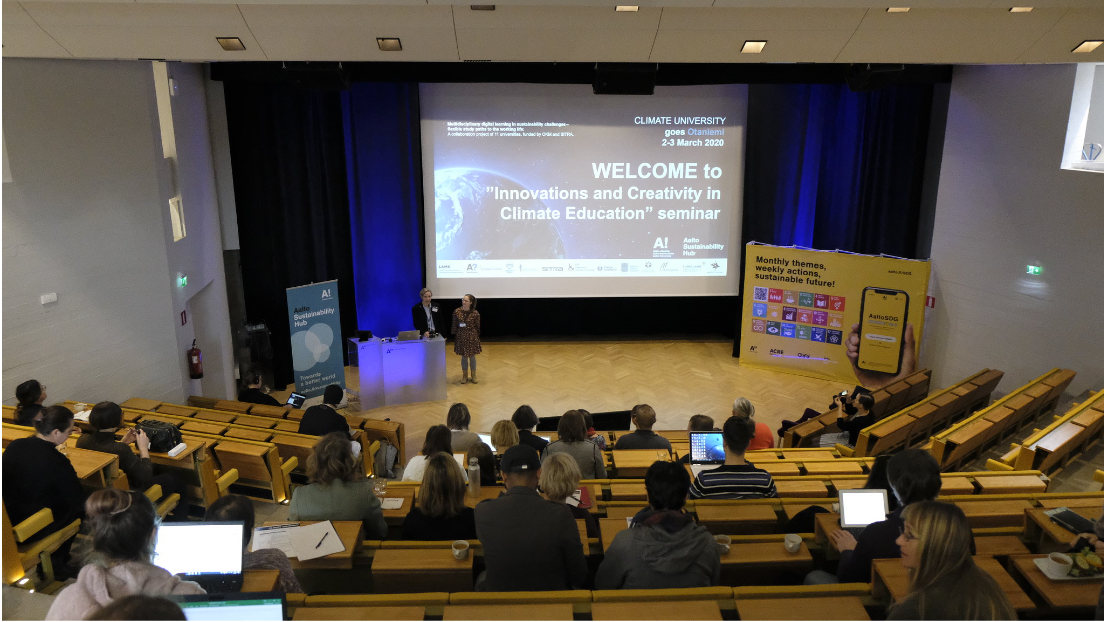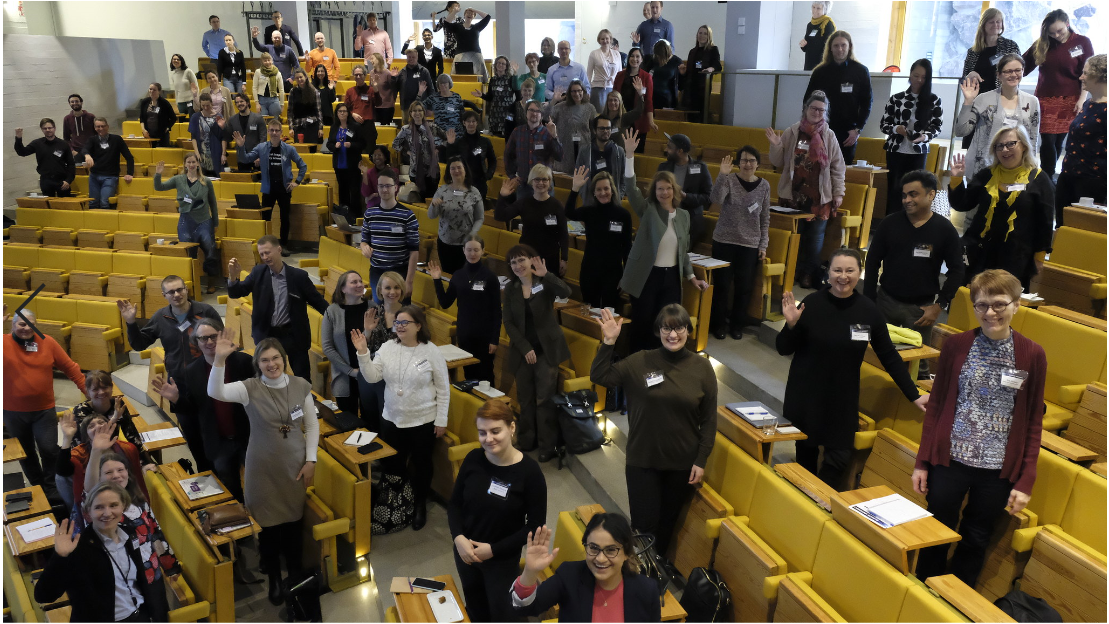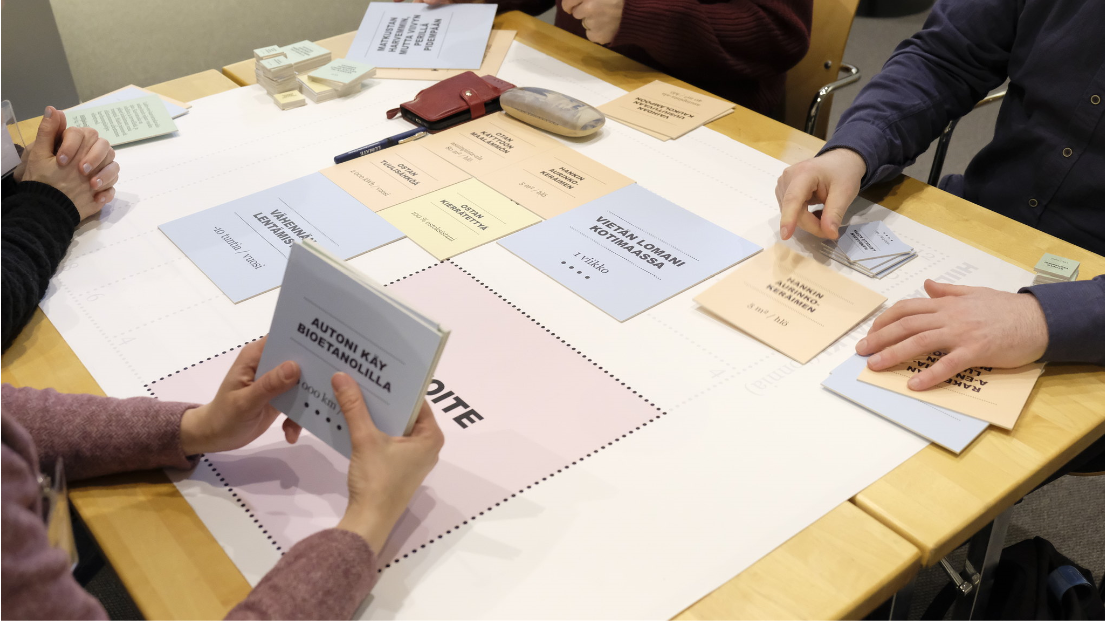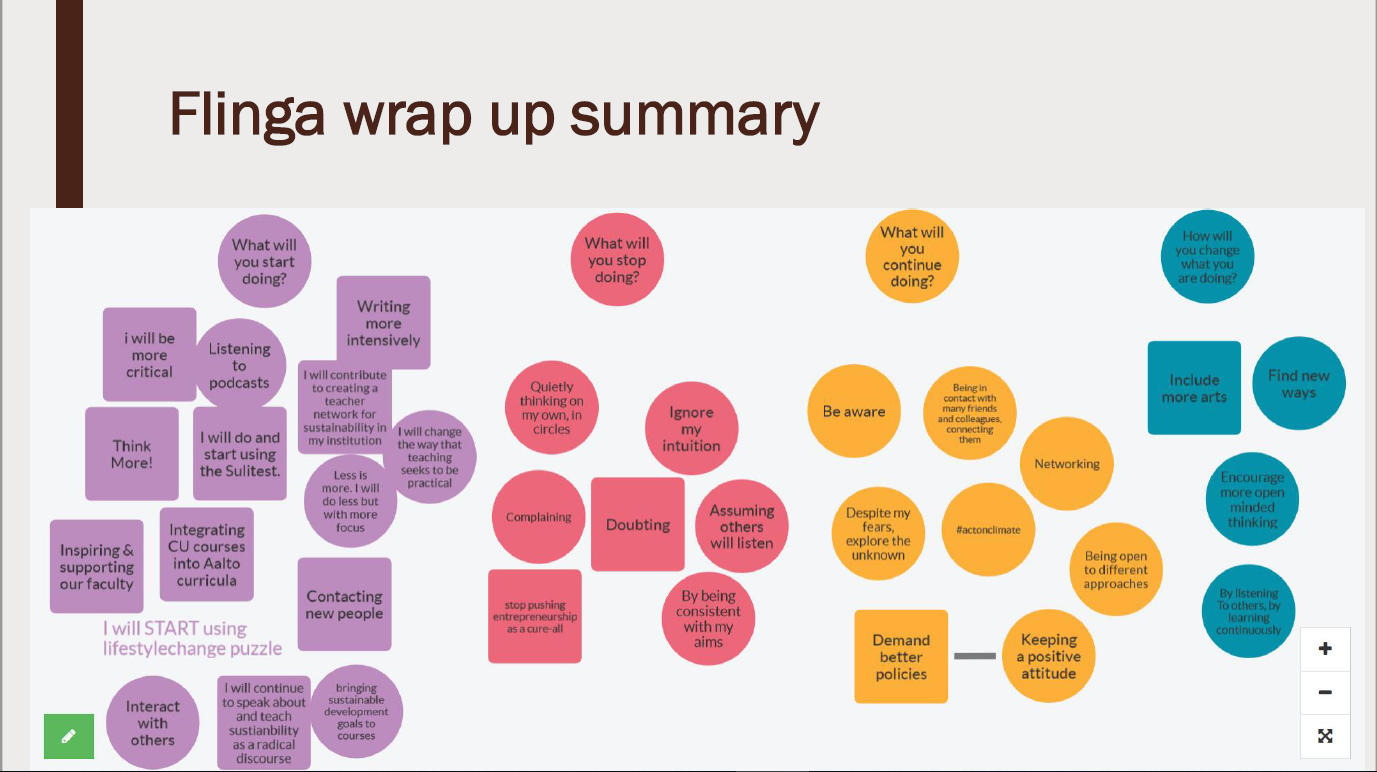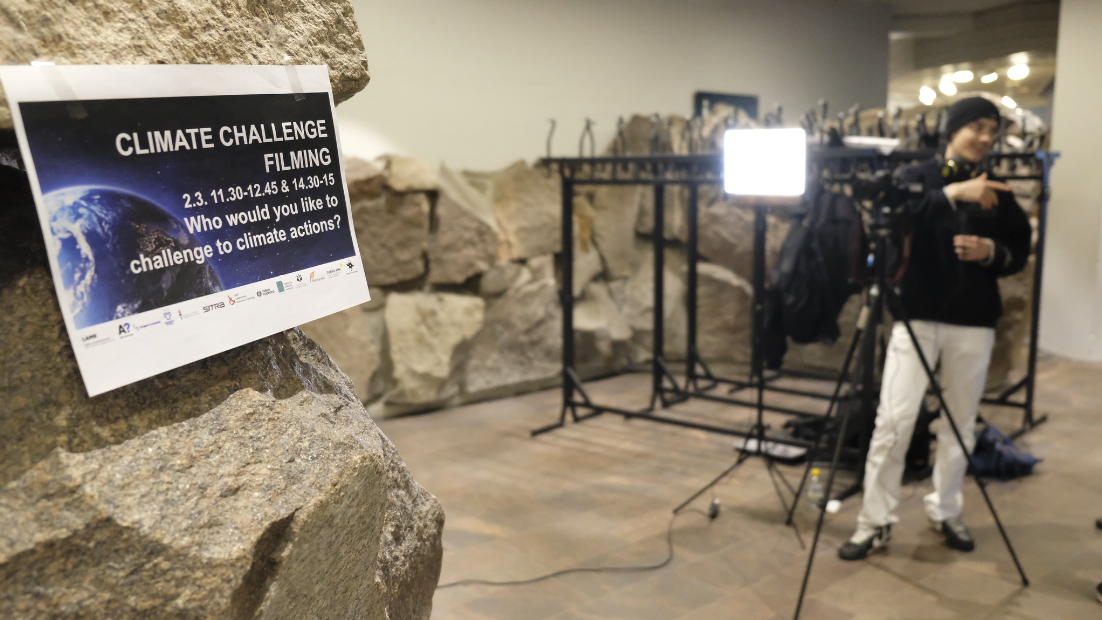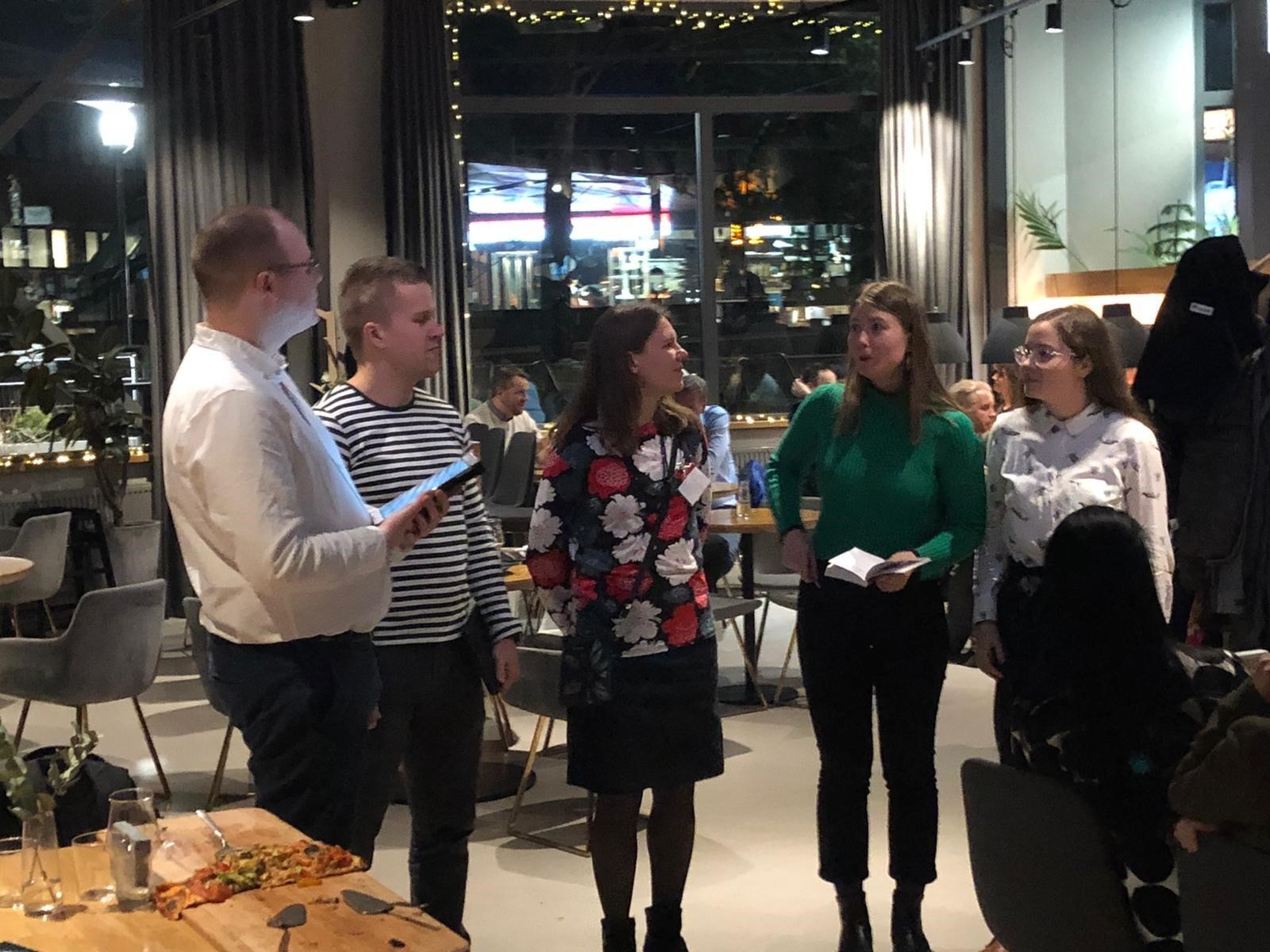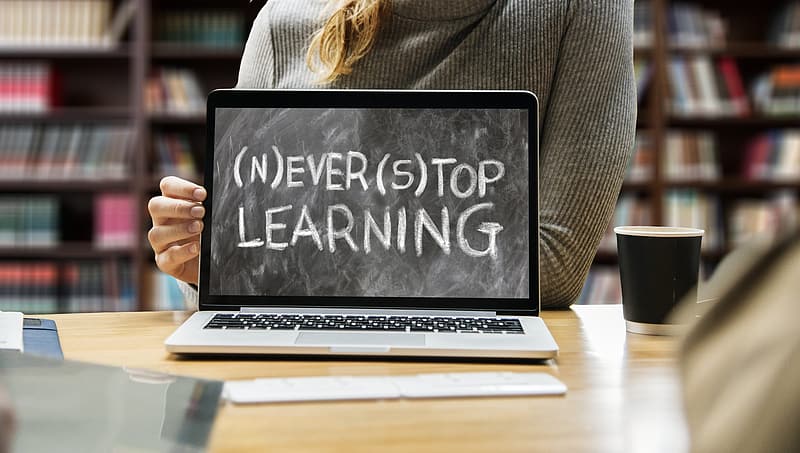The auditorium in Dipoli, the main building of Aalto University in Otaniemi, was fully packed with multidisciplinary knowledge and climate enthusiasm when the participants of the Aalto Climate University seminar gathered together on Monday morning 2nd of March. The seminar attracted a lot of interest with more than 100 participants.
Figure: Welcome to Climate University seminar in Aalto University.
The seminar started with greeting from the vice dean of School of Science, prof. Ari Koskelainen, who emphasized the importance and acuteness of the climate crisis and the role of university education in mitigating it. The seminar theme “Innovations and Creativity” was discussed through various sustainability and climate-related showcases from Aalto University. Prof. Anniina Suominen from Aalto School of Arts presented how they already have incorporated sustainability issues quite thoroughly in arts and design education. Meri Löyttyniemi from Aalto Sustainability Hub introduced Aalto’s latest effort to map for all Aalto courses to which UN Sustainable Development Goals they relate to. The SDG labels are being introduced to Aalto´s upcoming 2020-22 course plan. Based on the labeling, approximately 10 % of the roughly 3000 courses in Aalto include climate-related content, the SDG#13.
Figure: “Social intrapreneurs” for climate education. “Never doubt that a small group of committed citizens can change the world.” (Margaret Mead)
Entrepreneurship was another focus of Aalto’s seminar. Minna Halme, professor of sustainability management, introduced us the concept of social intrapreneurship – acting entrepreneurially inside a large organization to achieve social or environmental aims. The concept was easily recognized by many participants and found highly empowering. Lauri Järvilehto from Aalto Ventures Program emphasized that there is clear trend going on in start-up world towards more impactful and responsible entrepreneurship, which could have a significant impact in making our societies more sustainable.
Figure: Participants analyzing their own carbon footprint with the 1,5 Degrees Lifestyle Puzzle.
The first seminar day also included several hands-on workshops. Participants got a safe space to discuss their anxieties related to climate change, and they learned how awareness-based approach can help in education to empower students for climate actions and to be more in contact with their inner feelings. One workshop group analyzed the significance of personal climate actions using the 1.5 Degrees Lifestyle Puzzle by D-mat Ltd.
Figure: Participants’ summary of what they will start doing, stop doing, continue doing and change after the seminar.
During the seminar day university researcher Angelina Korsunova challenged us to ponder our personal behaviour and thoughts: what to start on doing, what to stop, what to continue and what to change in order to achieve our individual goals as climate educators and change makers in our home universities organisations.
Figure: The climate challenges were filmed in Dipoli lobby.
The lunch and coffee breaks were utilized for Climate Challenges filming as a continuum to the campaign started at Metropolia workshop last fall. We recorded altogether 13 challenges for various actors including Aalto Student Union AYY, Aalto University and Aalto Campus and Real Estate. The challenges will be published via Climate University Twitter and YouTube accounts.
Figure: Playing sustainability board games by Snowflake Education Ltd.
During the second day participants had the chance to explore climate actions in Otaniemi high school and Aalto Junior, and play sustainability board games (Clime Out and Dilemma) designed for education by Snowflake Education from Sweden. Most of the day was devoted to piloting and developing Climate University course materials in smaller groups. Development concentrated on the following courses:
- Sustainable.now – a Bachelor-level course on sustainable development and its various aspects
- Solutions.now – a Master level project course for solving climate and sustainability challenges with companies and organisations
- SystemsChange.now – a Master-level course on systems thinking and multidisciplinary approaches to climate change
- Climate.now – basic course on climate change for high schools
Figure: “I love Java sweet and hot” – A surprise performance by Dominante quartet/quintet during the dinner.
The next steps for the Climate University project community include finalizing the course materials, piloting the courses with students, and most importantly promoting active integration of courses to current curricula in universities, including lifelong learning for all stakeholders and executive education as well. We hope this will proceed as smoothly as the Dominante quartet singing at our dinner in Fat Lizard restaurant!
Figure: Enjoying vegan breakfast at Dipoli.
The conference organizing team was proud about serving fully vegan food at the conference. We hope the effort will continue in the following Climate University seminars! Besides, food waste was successfully avoided during the conference by informing Aalto students of leftovers through a student-led telegram group.
Lady Fortuna was on our side, as the seminar was scheduled well before the restrictions of corona pandemic came into force. Hopefully this pandemic – once it is over – will bring forth and amplify our abilities for coordinated collective measures and improve our behavior and actions to fight the climate crisis as efficiently.
Sincere thanks for all seminar participants for making the seminar in Aalto such a great event!
Speeches from Dipoli auditorium and all seminar materials are available at: https://www.aalto.fi/en/events/innovations-and-creativity-in-climate-education
Follow the climate challenge campaign on Twitter and YouTube:
https://twitter.com/uni_climate
https://www.youtube.com/channel/UCGgU0C70cxVcfdzYnYQHjxg
Text: Emma Sairanen, Sanna-Liisa Sihto-Nissilä & Meri Löyttyniemi
Photos: Cvijeta Miljak

